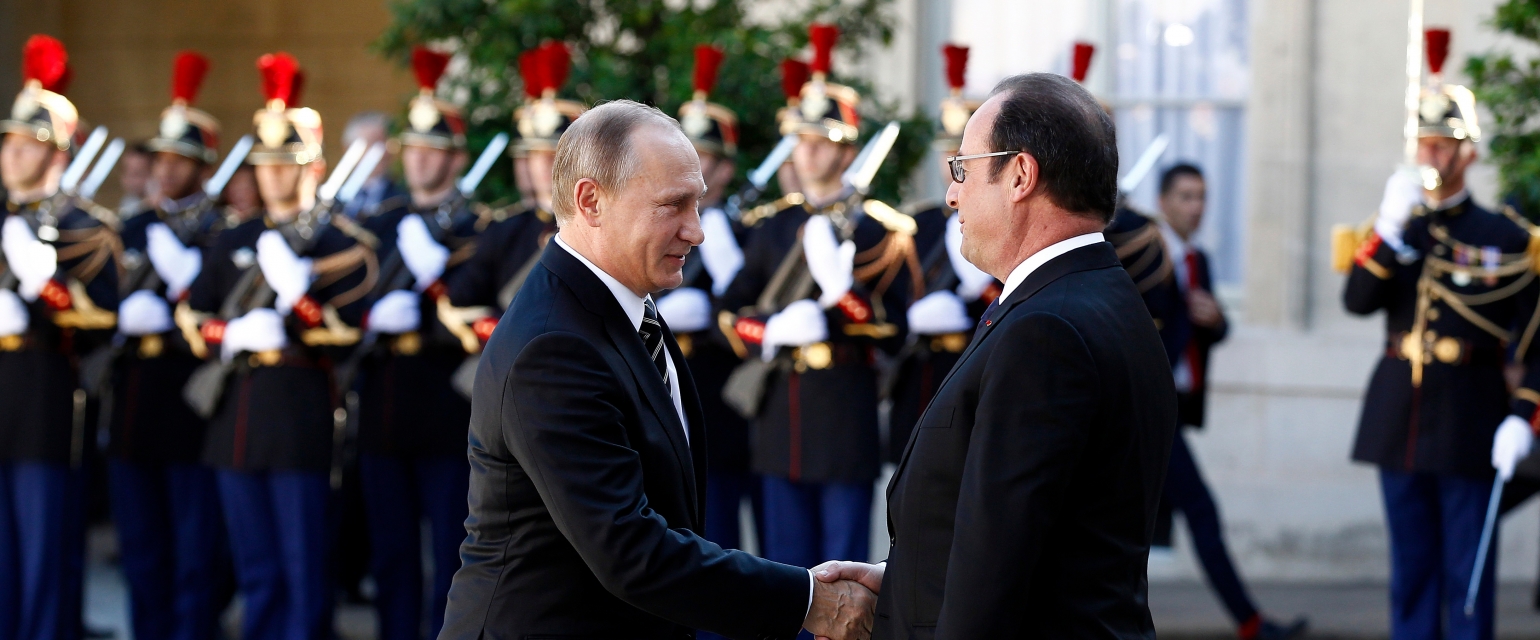

While Russian military operations in Syria received all the headlines, there were other important foreign policy developments in both Ukraine and Turkey. This past week, Russian diplomacy was occupied with three main areas – the nation’s military operations against the Islamic State of Iraq and the Greater Syria (ISIS), developments in Ukraine, and increasingly contentious relations with Turkey.
Russia’s military activities against ISIS
On Wednesday, Oct. 7, Russian Navy ships based in the Caspian Sea launched 26 cruise missiles at ISIS positions. The missiles crossed the airspaces of Iran and Iraq before hitting their targets in Syria. With this step, Moscow achieved three Russian objectives.
First, this secured the de facto coalition with Iran and Iraq against ISIS. Second, this demonstrated the high accuracy, reliability and efficiency of the country’s weapons and communication systems, and the global positioning system GLONASS. That is, Russia made it clear that it is a force to be reckoned with in the Caspian Region and the Middle East, being able to conduct effective military operations in those areas. Thirdly, this was an actual wartime demonstration of Russia’s newest weapons for potential customers in the largest and ever-growing arms market in the world – the Middle East.
On that same day, Russian President Vladimir Putin, in a meeting with Defense Minister Sergei Shoigu, supported the proposal of French President Francois Hollande to combine Syrian government troops with the “healthy opposition” in the Free Syrian Army, in order to fight ISIS.
Russia is seeking a viable Sunni opposition in Syria, and believes that only this will lead to a lasting solution of the present conflict. In the event of a likely victory over ISIS, Sunni groups will have to fill the power vacuum that is created, and in the future become part of the new Syrian establishment.
Regulation of the Ukrainian crisis
One of the results of the meeting of the Normandy Four in Paris on Oct. 2 was the extension of the Minsk Agreements, which were scheduled to expire in 2015.
In eastern Ukraine, in the regions not controlled by Kiev, with the participation of Russia, the governments there have decided to postpone the election of the heads of cities and regions to a later date, and hold them in accordance with Ukrainian legislation – in February 2016, instead of Oct. 18 and Nov. 1 as they had planned before.
Meanwhile, many Ukrainian politicians have now started talking about the disadvantages for Kiev in the extension of the Minsk Agreements. In particular, among Ukrainian nationalists, a belief is spreading that the participation of Russian-speaking eastern regions of Ukraine in the political life of the country is not a desirable option.
Continue reading at Russia Direct
Another round of talks on Iran's nuclear program between Iran and the P5+ 1 group was held in Montreux, Switzerland last week. During the talks, a compromise was reached on key issues, opening up the possibility that a framework agreement might be signed by the end of March.
If Russia holds out until 2020 and all attempts by its enemies to bring it to economic collapse, chaos, and disintegration fail, then we can be certain that the era of Western dominance has ended. Thus, international relations will officially enter a new era.
The agreements establish a framework for cooperation in the event that either side takes any large-scale military actions, requiring the parties to inform each other in advance of any such steps. The document also sets out a code of conduct to be followed if U.S. or Chinese military air or naval units come into contact with each other.
Indulgence of such a confrontational leader — in unison with the Russia’s growing reactionary ideological mood — is tipping the country into the archaic past, while marginalizing it internationally, not only in the West, but also in the East. In China, which claims to be a strategic partner of Russia, experts are extremely skeptical about Chechen home rule, seeing it more as a sign of weakness than strength.